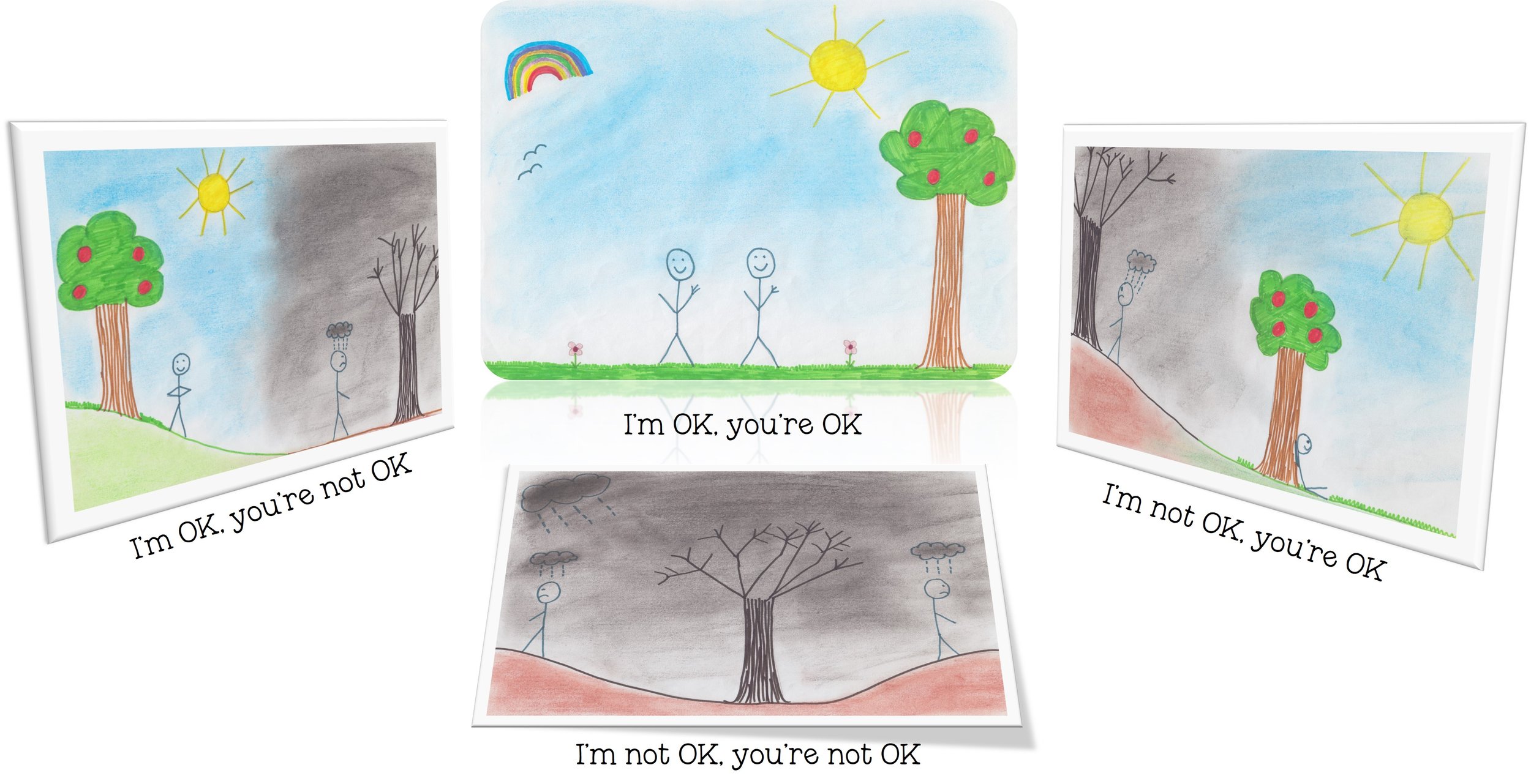
We can use this framework to find fairer solutions to our problems
Whilst it isn’t always possible to find solutions which are equally fair to all parties, the way in which we seek to find solutions can be. An ‘I’m OK, you’re OK’ approach involves honest, clear and respectful communication, listening and remaining open to others’ points of view, assimilating new information and not becoming defensive.
By holding a perspective of 'I'm OK, you're OK' as our healthiest way of solving problems, we can talk calmly and rationally about the global problems we face.
‘I’m OK, you’re OK’ is in the rules and regulations, the policies and strategies, the systems and structures which underpin our societies
‘I’m OK, you’re OK’
We live in large, complex societies, within political, cultural, socio-economic systems which we’ve created. With this level of complexity, the myriad stakeholders involved and their different wants/needs, it’s not surprising that we lose our way at times.
We can see the principles of problem solving in an ‘I’m OK, you’re OK’ way, throughout the fabric of our societies, from families, schools and communities through organisations, industries and nations. It’s in some of the rules and regulations, the policies and strategies, the systems and structures which underpin our societies. Informally, we might see people coming to the assistance of someone taken ill in the street, or people rallying in support of others. More formalised arrangements include some of the institutions within society and the rules and regulations around how they are organised. For example, within consumer law, if you buy something online, you have the right to return it for a refund within a certain timeframe. This is an attempt to offer consumers protection, to treat them fairly; underpinning law is the intention of being ‘I’m OK, you’re OK’.
Unfortunately, in terms of our impact on other species of life, our ecology and ecosystems, it seems that, as a collective, our behaviour is often ‘I’m OK, earth is not OK’. Many of us live in ways which are completely unsustainable, borrowing from a bank which we cannot re-pay.
By holding a perspective of 'I'm OK, you're OK' as our healthiest way of solving problems, we can talk calmly and rationally about the global problems we face – problems such as poverty, homelessness, climate change and the destruction of biodiversity. We can use the framework to step back and consider all the stakeholders involved. As we do this, we can tease apart some of the complexities, considering the impact our actions and decisions have on the stakeholders involved. In this way, we are better able to find fairer solutions to our complex problems.
Find ways to do things differently






